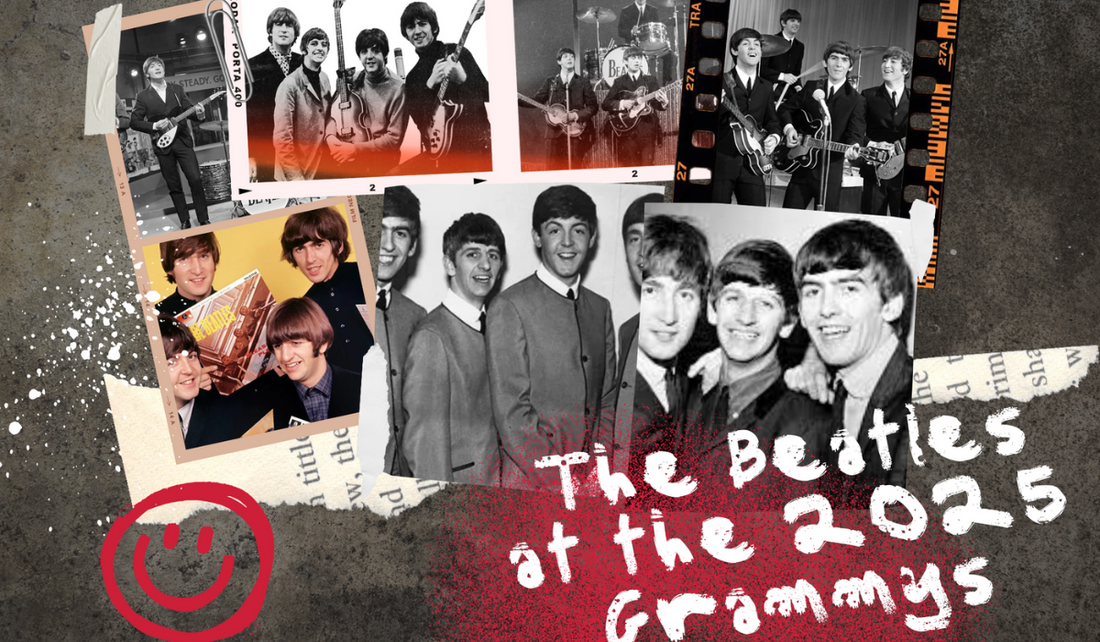The Beatles are one of the best-selling music groups ever, but their success at the Grammys hasn’t matched their legendary status.
Surprisingly, the band has only won seven Grammy awards, and half of those were for projects released long after they broke up.
In 2025, the iconic group is up for multiple Grammys again, thanks to their 2023 single, “Now and Then.” This track, which the two remaining members have called their final song, has earned nominations for Record of the Year and Best Rock Performance.
Interestingly, this is the first time The Beatles are competing in the Best Rock Performance category.
Many of their earlier nominations were in broader categories, and this specific award didn’t exist in its current form during the band’s active years.
While The Beatles have been nominated for Record of the Year before, “Now and Then” marks their fourth shot at winning it—an honor they’ve never claimed.
It could be their chance to finally secure a win in a category where fans might expect them to have dominated.
2025 Grammy Nominations

The Beatles have been nominated for the 2025 Grammy Awards in the Record of the Year category for their final song, “Now and Then.”
They’ll compete with top artists like Post Malone, Kendrick Lamar, Beyoncé, Chappell Roan, Taylor Swift, Charli XCX, Billie Eilish, and Sabrina Carpenter.
Paul McCartney and Ringo Starr are the two surviving members of the band. They used artificial intelligence to bring John Lennon’s 1970s demo to life.
The song also includes contributions from the late George Harrison. He worked on it with McCartney and Starr in the 1990s.
The Beatles have a legendary status but never won a Grammy for Record of the Year. Could this finally be their moment?
Creating a masterpiece can take years. However, for The Beatles, the journey of “Now and Then” spanned 45 years.
The song was originally written by John Lennon in the late 1970s. The song is a poignant, piano-driven reflection with lyrics like -
- I know it’s true
- It’s all because of you
- And if I make it through
The unfinished song remained untouched after Lennon’s tragic passing in 1980 for decades. In a heartfelt tribute to their late bandmate, the remaining Beatles decided to complete it.
Paul McCartney brought in Giles Martin as co-producer. He is the son of their longtime producer, George Martin.
They used -
- Lennon’s original 1977 demo
- George Harrison’s guitar parts from the 1995 Anthology sessions, and Ringo Starr’s drumming and vocals were recorded in 2022.
The result was “Now and Then,” which became The Beatles’ 35th top 10 hit on the Billboard Hot 100. It is actually an emotional farewell to the band’s storied legacy.
“Although it wasn’t written for Paul, it feels like John is speaking to him now in a very personal way,” Martin told Rolling Stone. “It’s bittersweet, with a mix of happiness and regret—so very John.”
Historic Grammy Wins
 dav
dav
The Beatles made a historic impact on music in the U.S., starting with their debut album -
- Meet The Beatles!, which topped the Billboard 200 in 1964.
- Between then and 1970’s Let It Be, the band achieved 14 No. 1 albums.
- These include soundtracks and compilations.
- Their string of hits included 19 No. 1 singles on the Billboard Hot 100, from “I Want to Hold Your Hand” in 1964 to “The Long and Winding Road” in 1970.
The band earned their first GRAMMY Awards in 1964, winning Best Performance by a Vocal Group for A Hard Day’s Night and Best New Artist.
They made their GRAMMY debut the following year, performing “I’m Happy Just to Dance With You” during the televised special The Best on Record for the 7th GRAMMY Awards.
Here’s a fun fact: In 2010, the Vatican’s official newspaper named Revolver (1966) the greatest pop album of all time.
In 2014, The Recording Academy celebrated the Beatles’ legacy with The Beatles. It was The Night That Changed America — A GRAMMY Salute.
The TV special marked the 50th anniversary of their legendary debut on The Ed Sullivan Show and featured performances by Paul McCartney and Ringo Starr, along with Stevie Wonder, Ed Sheeran, Katy Perry, and Maroon 5, among others.
GRAMMY Recognition Rules
The Beatles’ final song, set to be released later this year, is stirring up a debate for the Recording Academy as it grapples with how to handle AI-generated music in the 66th GRAMMY Awards, scheduled for February 4, 2024.
Despite new guidelines introduced in June 2023, the eligibility of AI-assisted music remains a gray area, sparking questions about how such creations will be judged.
What Do the Grammy’s AI Rules Say?
According to the rules, only human creators can be considered for Grammy nominations or wins.
Fully AI-generated works, like the viral song “Heart On My Sleeve,” which mimicked Drake and The Weeknd, are ineligible.
However, projects with human involvement, such as the Oasis-inspired The Lost Tapes / Vol. 1, where AI recreated Liam Gallagher’s vocals while humans wrote and performed the music, could qualify for some categories.
If AI is involved, the song can only be nominated in the specific categories where human contributions were significant.
For instance, if humans wrote the lyrics or performed the song, those elements might qualify. The rules emphasize that human input must be “meaningful and more than de minimis” (i.e., more than minor or insignificant).
To Wrap Up
If “Now and Then” wins Record of the Year, Paul McCartney will achieve the rare distinction of completing a sweep of the Grammy’s Big Four awards. Remarkably, it would make him the artist who took the longest time to accomplish this feat in Grammy history.
McCartney’s journey began in 1965 when he won Best New Artist with The Beatles. Two years later, he shared Song of the Year with John Lennon for “Michelle.” In 1968, The Beatles earned Album of the Year for their iconic Sgt. Pepper’s Lonely Hearts Club Band.
A win for “Now and Then” would cement McCartney’s legacy as one of the greatest contributors to music history, completing an unparalleled Grammy career that spans nearly six decades.





